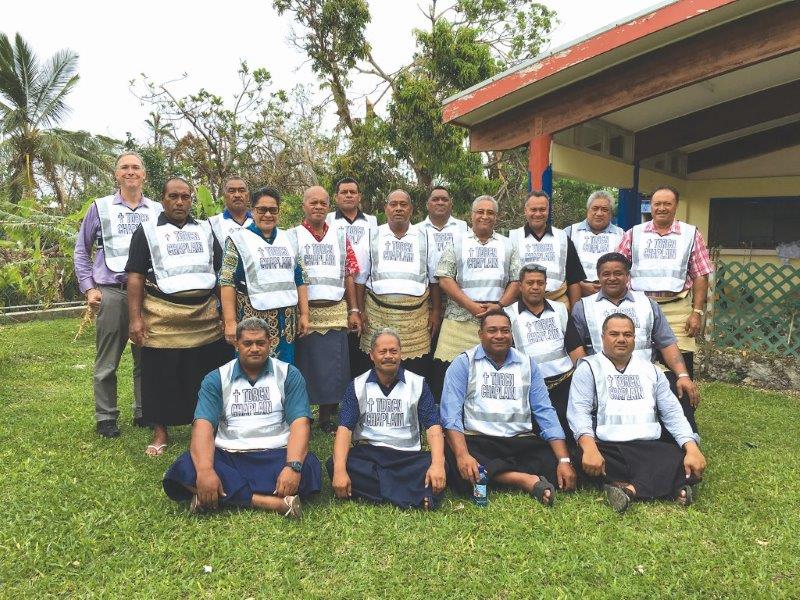Rev Dr Stephen Robinson, National Disaster Recovery Officer for the Uniting Church in Australia, recently visited Tonga, in the wake of Tropical Cyclone Gita, which affected Island nations in the South Pacific including Tonga, Samoa and Fiji. He shares some of his experience with Revive.
On Monday 12 February, Tropical Cyclone Gita devastated the islands of Tonga, with winds of 230km/h whipping the Southern Coast of the main island of Tongatapu. Locals had taken warnings seriously and prepared as well as they could, but lightly built houses were no match for the monster storm.
The fact that it struck at night probably saved scores of lives, as people were bunkered indoors and avoided injury from flying roofing iron and falling trees. The negative is in the lasting memory of families who huddled together through the terror of a sleepless night of pitch darkness and screaming wind, hoping and praying their place of shelter would hold together.
With the dawn’s light, people ventured out to assess the damage and found this particularly confronting. Many houses lost all or part of their roofing, torn metal and splintered wood, thousands of fallen trees and palm fronds scattered. Rain continued to inundate many houses that had escaped the worst of wind damage. Power poles leaned precariously or snapped off completely, and power lines lay across muddy roads.
In the centre of the main city of Nuku’ Alofa, the walls of Parliament House were blown out and the roof crumpled to the ground, a state of emergency was declared which included curfews to keep people from the CBD as many shops were emptied of ruined goods. There are no cyclone shelters in Tonga, so while most people remained in their homes during the storm, the most solid gathering places are in the church buildings that play a prominent role in Tongan community life. The people’s faith in their church communities means there is a place to come together and share their experiences of loss and hope.
Red Cross, Caritas and other groups are doing important work in delivering supplies to the most affected – food, water, and temporary shelter, but it is the churches that are at the forefront of bringing the community-building psycho-social support which will restore hope.
In 2015, I visited Tonga with Rev Alimoni Taumoepeau at the request of our church partner, the Free Wesleyan Church of Tonga, to help train a network of chaplains to support people in the event of disaster or crisis, through UnitingWorld. From this first training course, which included a ‘train the trainer’ component, the Tongan Disaster Recovery Chaplaincy Network (TDRCN) was born.
After Tropical Cyclone Gita hit, the Free Wesleyan church deployed the chaplains we had trained in 2015. Chaplains were able to respond to people who needed them most, but this was not easy for them as conditions were far from ideal. The weather this time of year is hot and steamy. The cyclonic winds had dropped to dead calm and the heat and humidity from the water brought with it discomfort and the threat of mosquitoes bearing Dengue Fever and the Zika Virus.
The chaplains spoke of how shocked they were by the damage to both the natural environment and the villages they visited, of talking to people as they sat under plastic tarpaulins or in the tents in which they now live. The chaplains themselves have stresses in their lives, many having endured the cyclone and having their own homes flooded, before leaving to care for others.
Cyclones and droughts are increasing in frequency and intensity across the Pacific. UnitingWorld support Uniting Church partners in the region to prepare vulnerable communities and reduce the impacts of natural disasters. Activities include community based risk assessment and contingency planning; training networks of disaster response chaplains, underpinned by Christian theology that gives hope and inspires faith-filled action.
For more information about UnitingWorld’s Disaster Risk Reduction Work, and to donate to their Cyclone Gita Appeal visit unitingworld.org.au. This article was originally published on UnitingWorld Blogs. To read the full article visit unitingworld.org.au/tropicalcyclone-gita-update.
